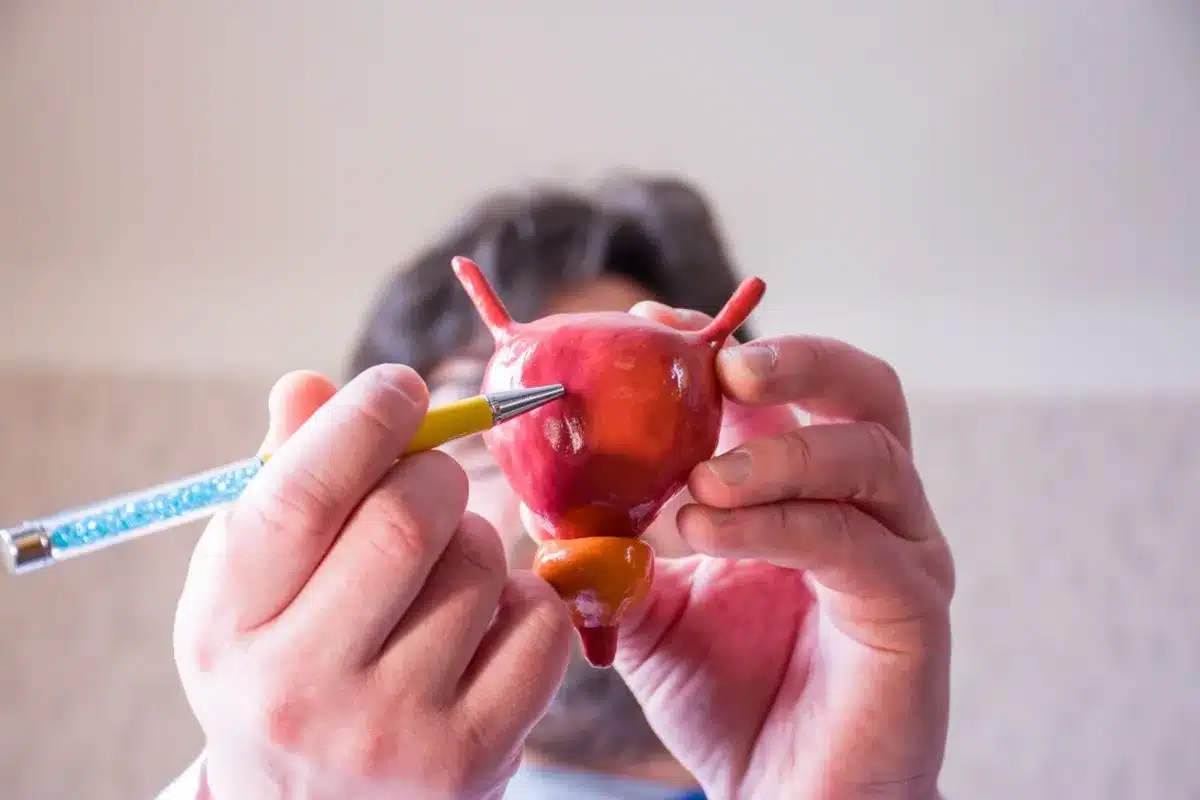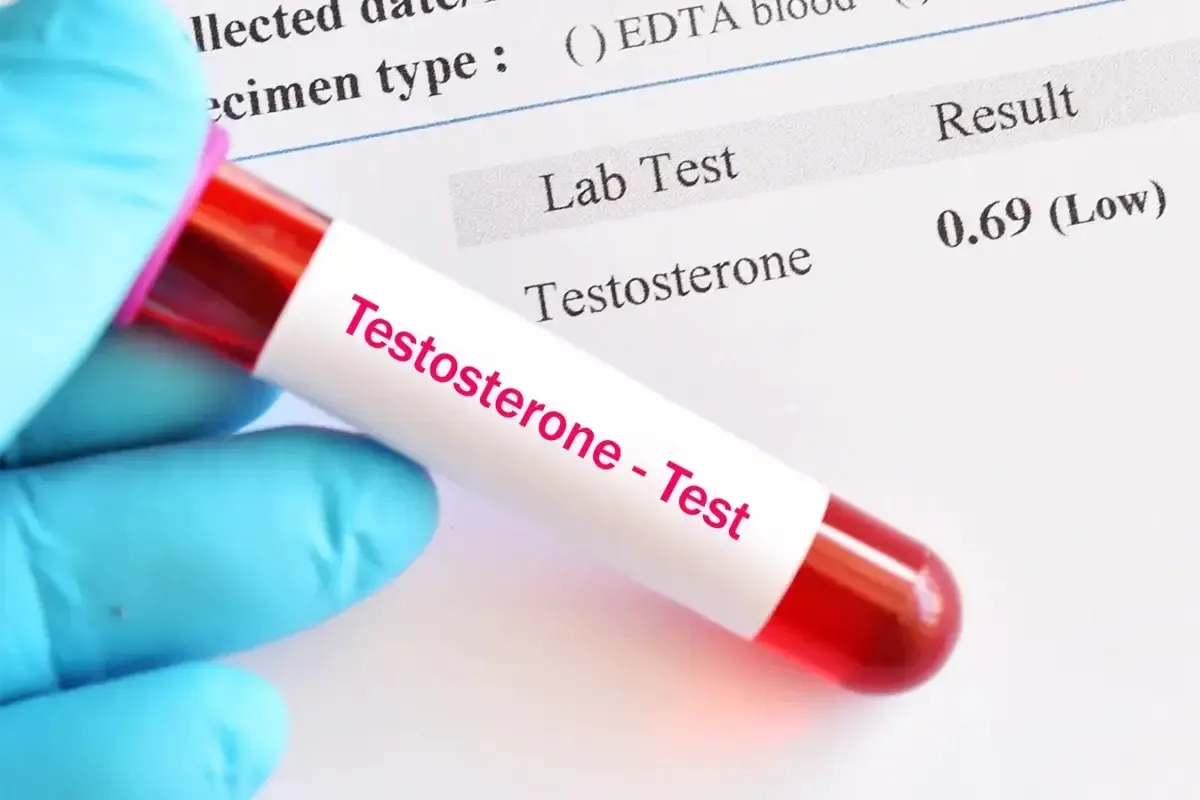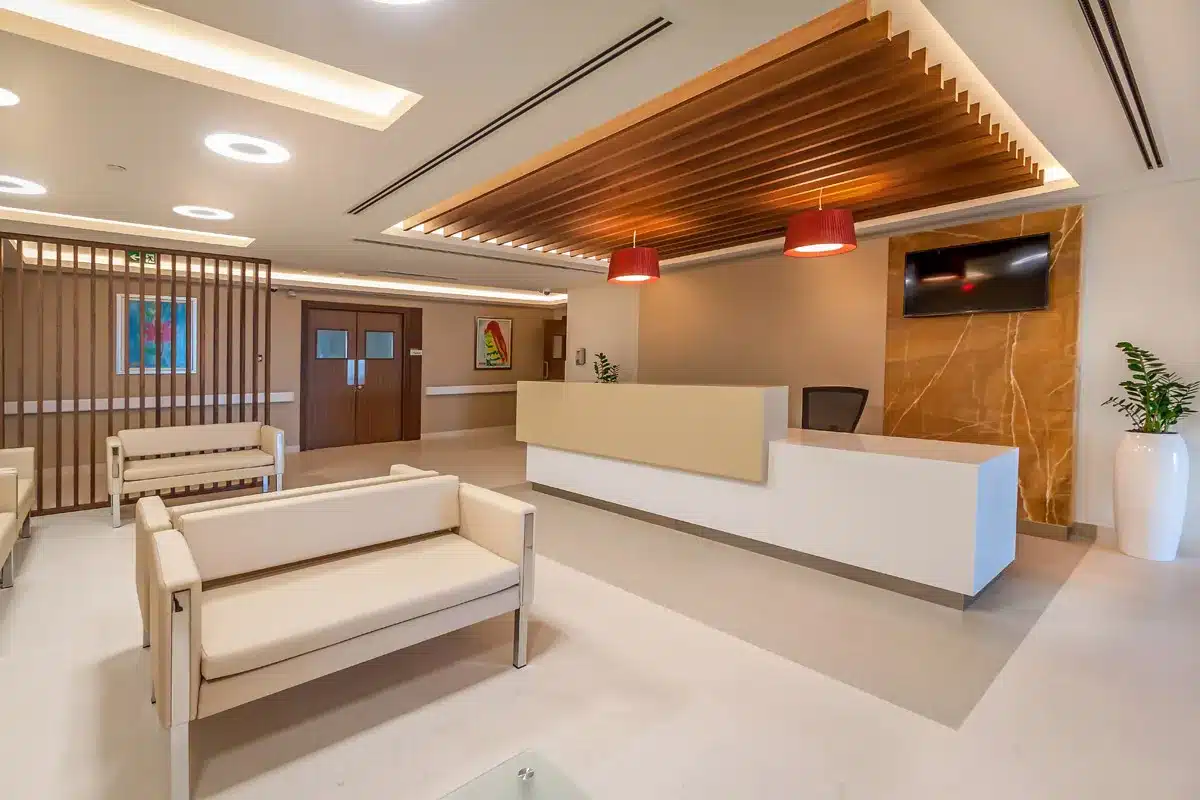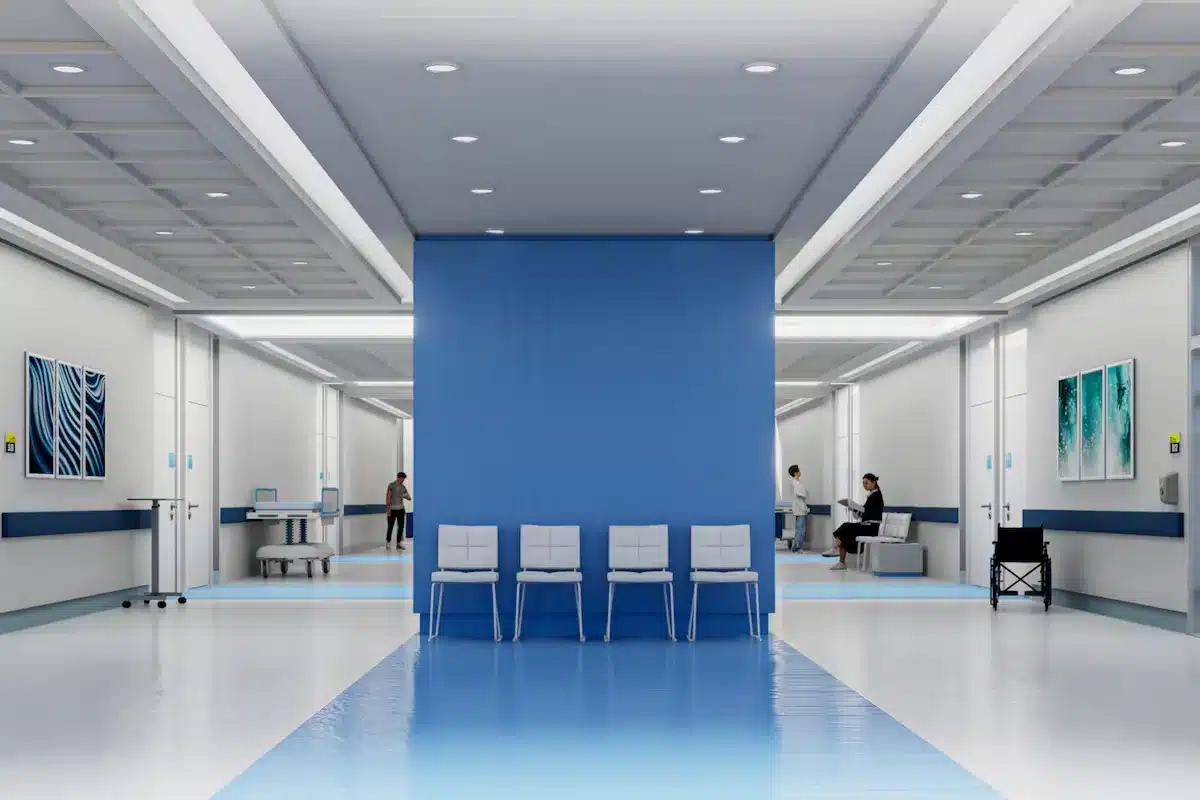
Pediatric gastroenterology is a special field of medicine. It deals with digestive, liver, and nutritional problems in kids. As a parent, it’s normal to worry about your child’s health. But with the right help, your child can get the best care. At your child’s first gastroenterologist appointment, you’ll see a detailed check-up. Kathy Chen, MD of St. Luke’s Pediatric Gastroenterology, says, “We try to talk as much as we can before the first visit to make everyone feel better.” Our team, including infant GI specialists, will work with you. What does a gastroenterologist do on first visit? The doctor reviews your child’s medical history and symptoms in depth, performs a complete physical examination, and discusses possible tests or procedures if needed. Together, the team aims to understand your child’s condition and create a personalized treatment plan.
This paragraph incorporates the focus keyword “what does a gastroenterologist do on first visit” naturally while outlining the approach to the initial pediatric gastroenterology appointment.Pediatric gastroenterology is a special field of medicine. It deals with digestive, liver, and nutritional problems in kids. As a parent, it’s normal to worry about your child’s health. But with the right help, your child can get the best care. At your child’s first gastroenterologist appointment, you’ll see a detailed check-up. Kathy Chen, MD of St. Luke’s Pediatric Gastroenterology, says, “We try to talk as much as we can before the first visit to make everyone feel better.” Our team, including infant GI specialists, will work with you. What does a gastroenterologist do on first visit? The doctor reviews your child’s medical history and symptoms in depth, performs a complete physical examination, and discusses possible tests or procedures if needed. Together, the team aims to understand your child’s condition and create a personalized treatment plan.
Related
Add the focus keyword naturally at the start of the paragraph
Insert the focus keyword once as a quoted phrase in the second sentence
Produce a 40“60 word version with the focus keyword included
Create a 120-character SEO meta description containing the focus keyword
Rewrite the paragraph to start with the focus keyword and keep a friendly tone
Key Takeaways
- Understand the role of pediatric gastroenterology in treating digestive issues in children.
- Learn what to expect during your child’s first visit to a gastroenterologist.
- Discover how a multidisciplinary approach can benefit your child’s care.
- Find out how our team communicates with you and your child to ease anxiety.
- Gain insight into the thorough evaluation process for your child’s condition.
Understanding Pediatric Gastroenterology
Pediatric gastroenterology is a special field that deals with kids’ digestive problems. It covers everything from babies to teenagers. It’s all about finding, treating, and managing stomach issues in young ones.
This field is not just a smaller version of adult gastroenterology. It needs its own set of skills and knowledge. Doctors in this field get extra training after their pediatric residency. They study more about kids’ stomach health, liver issues, and nutrition.
Definition and Scope of the Specialty
Pediatric gastroenterology is all about keeping kids’ digestive systems healthy. It includes the esophagus, stomach, small intestine, and colon. Doctors in this field are experts in both general pediatrics and gastroenterology. They can handle many stomach problems.
More than 90% of pediatric centers perform endoscopic procedures every year. This shows how advanced the care is in this field. They deal with serious issues like inflammatory bowel disease, celiac disease, and liver problems.
How Pediatric GI Care Differs from Adult Treatment
Kids’ GI care is very different from adults’ because of their growing bodies. Kids’ stomachs are not fully developed yet. They need food and treatments that fit their age and size.
Experts say, “The care of children with gastrointestinal disorders requires a deep understanding of nutrition, growth, and development.” This means each child needs care that’s just right for them.
The main difference between kids’ and adults’ GI care is not just size. It’s about giving the right care for each child’s stage of growth. Doctors use tools and treatments that fit kids’ smaller bodies and growing systems.
When to See a Pediatric GI Doctor
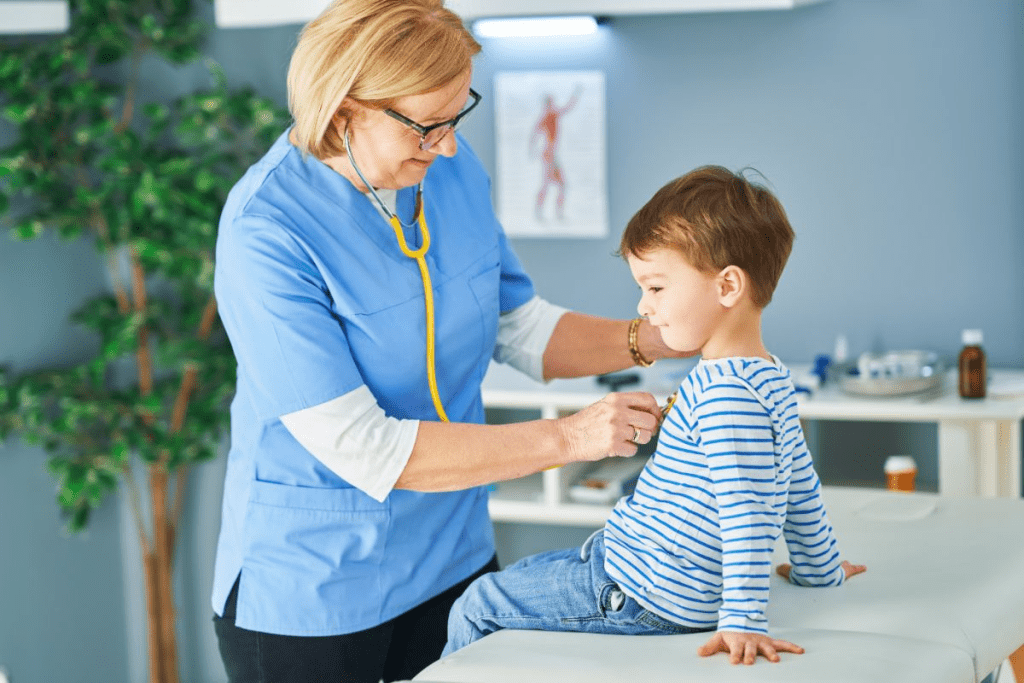
As a parent, knowing when to see a pediatric GI doctor is key to your child’s health. We’ll help you spot the signs and symptoms that mean it’s time for expert care.
Common Symptoms That Warrant a Specialist Referral
Children can show signs of GI trouble that worry parents. Some problems might go away by themselves, but others need a pediatric gastroenterologist. Here are some symptoms that might mean it’s time to see a specialist:
- Recurring abdominal pain: Pain that keeps coming back and doesn’t get better with simple fixes.
- Chronic diarrhea or constipation: Long-term issues that make your child uncomfortable and affect their nutrition.
- Blood in stool or vomit: A serious sign that needs a quick medical check-up.
- Unexplained weight loss or failure to thrive: Signs that might mean your child isn’t absorbing nutrients well or has a serious problem.
- Difficulty swallowing or persistent vomiting: Symptoms that could point to esophageal or other GI issues.
Conditions Requiring Immediate Attention
Some GI problems in kids need urgent care. These include:
- Severe abdominal pain: Sudden, intense pain that could be a sign of something serious like appendicitis.
- Signs of dehydration: Long-lasting vomiting or diarrhea, which can be very dangerous for kids.
- GI bleeding: Visible blood in stool or vomit, a true medical emergency.
- Jaundice: Yellow skin and eyes, which could mean liver problems.
Spotting these signs and knowing when to see a GI doctor is vital for your child’s health. If you’re worried about your child’s symptoms, always talk to a doctor.
Common Digestive Disorders Treated in Children
Children with digestive disorders face big challenges. Getting a diagnosis and treatment early is key. Pediatric gastroenterologists help with issues like Inflammatory Bowel Disease (IBD), celiac disease, and liver problems.
Inflammatory Bowel Disease (IBD)
IBD includes Crohn’s disease and ulcerative colitis. It causes inflammation in the gut. Kids with IBD might have diarrhea, belly pain, and lose weight.
Early treatment can really help kids with IBD feel better. Doctors use medicine, diet changes, and sometimes surgery to treat it.
Celiac Disease and Food Allergies
Celiac disease happens when gluten damages the small intestine. Symptoms are diarrhea, belly pain, and feeling tired. Sticking to a gluten-free diet is the only cure for celiac disease.
Food allergies make kids react to certain foods. This can cause mild to serious problems.
Liver Disorders and Transplantation
Liver problems in kids can come from genes, infections, or metabolic issues. In severe cases, a liver transplant might be needed. At top centers, liver transplant success rates for kids are over 97%.
Pediatric gastroenterologists work with a team to manage liver disease. They help plan liver transplants when needed.
It’s important for parents and caregivers to know about these digestive issues. Thanks to pediatric gastroenterology, kids can live healthier lives.
What Does a Gastroenterologist Do on a First Visit with Your Child
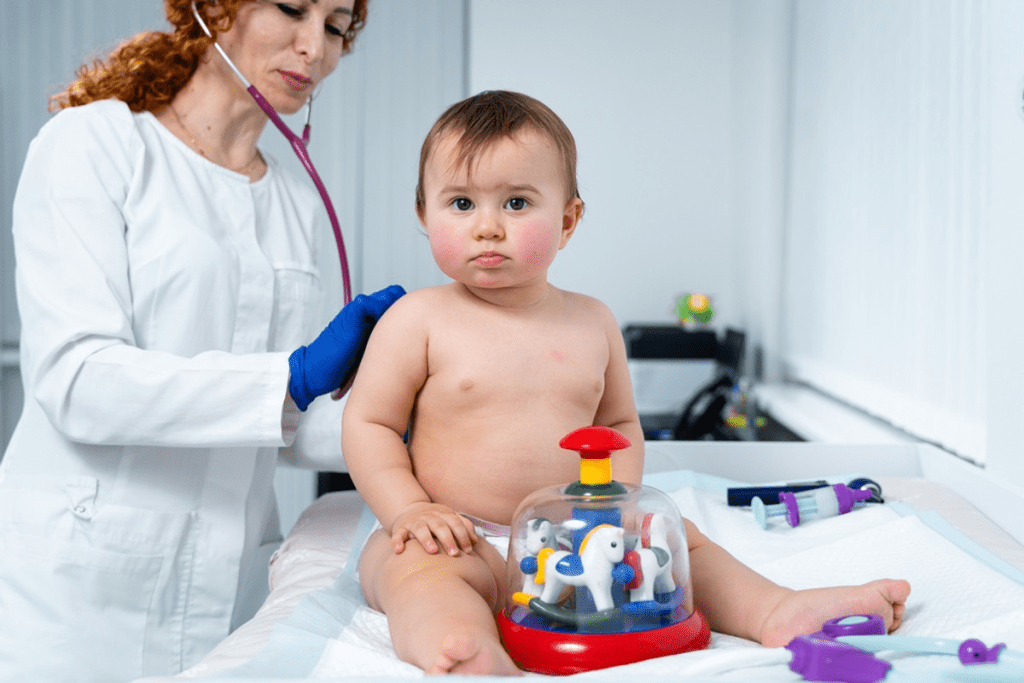
The first visit to a pediatric gastroenterologist is all about finding out why your child is feeling sick. We make sure you and your child feel comfortable and learn a lot.
Initial Consultation Process and Medical History
The visit starts with an initial consultation. If you’re wondering what does a gastroenterologist do on first visit, it begins with the doctor asking about your child’s health history, symptoms, and what they eat. This helps us understand your child’s situation better. We look for things that might be causing their symptoms.
When parents ask what does a gastroenterologist do on first visit, we explain that the doctor will review:
- Dietary habits and nutritional intake
- Symptoms and their duration
- Previous medical treatments or interventions
- Family medical history related to gastrointestinal issues
Talking about your child’s symptoms can be hard. But it’s a critical part of understanding what does a gastroenterologist do on first visit and how we can help.
Physical Examination and Initial Assessments
If you’re unsure what does a gastroenterologist do on first visit, the next step is a physical examination. The doctor checks your child’s health, looks for signs of malnutrition, and examines the abdomen for tenderness or other signs of concern.
So, when people ask what does a gastroenterologist do on first visit, it includes both a detailed discussion and a full physical checkup.
Developing a Diagnostic Plan
Still wondering what does a gastroenterologist do on first visit? After gathering information, we create a diagnostic plan. This may include tests, imaging, or procedures to figure out the problem.
Here’s what does a gastroenterologist do on first visit when it comes to planning:
- Order laboratory tests for blood, stool, or other samples
- Recommend imaging studies such as X-rays, ultrasound, or MRI
- Suggest endoscopic procedures to visually examine the digestive tract
Understanding what does a gastroenterologist do on first visit means recognizing the importance of these evaluations in shaping the treatment path.
Diagnostic Procedures in Pediatric Gastroenterology
When people ask what does a gastroenterologist do on first visit for children, the answer often includes preparation for diagnostic tests. These help us find out what’s causing stomach problems and allow us to make better treatment plans.
Laboratory and Imaging Studies
A big part of what does a gastroenterologist do on first visit is ordering tests. Lab tests identify infections, inflammation, or nutrient deficiencies. Imaging shows how the digestive system is functioning. This is essential in cases where symptoms are unclear.
Endoscopic Procedures and What to Expect
Another part of what does a gastroenterologist do on first visit might include discussing endoscopic procedures. Endoscopy uses a camera to look inside the digestive tract. We often explain this to families during the first consultation, so they know what to expect later.
Specialized Testing for Specific Conditions
Some parents want to know what does a gastroenterologist do on first visit when the symptoms suggest conditions like GERD or delayed gastric emptying. In such cases, we may introduce specialized testing, like pH monitoring or motility studies, even if they aren’t done on the first day.
Treatment Approaches for Pediatric GI Conditions
Another aspect of what does a gastroenterologist do on first visit is beginning to outline possible treatment options based on the initial findings. This can include medications, diet changes, or planning further evaluations.
Medication Management and Nutritional Therapy
When discussing what does a gastroenterologist do on first visit, we often begin introducing how medication and nutritional therapy may help. While treatments may not begin immediately, we prepare families for what could come next.
Surgical Interventions When Necessary
In complex cases, families may ask what does a gastroenterologist do on first visit if surgery might be needed. While we don’t perform surgery right away, we explain surgical options and when they might be considered later.
Long-term Management of Chronic Conditions
What does a gastroenterologist do on first visit also includes starting conversations around chronic care for diseases like IBD or celiac disease. We educate parents on long-term expectations, even during the first consultation.
The Multidisciplinary Team in Pediatric Gastroenterology
Understanding what does a gastroenterologist do on first visit also means knowing it’s not just about one doctor. The first visit introduces you to a larger care team that may include nurses, dietitians, psychologists, and more.
Healthcare Professionals Involved in Your Child’s Care
When discussing what does a gastroenterologist do on first visit, we introduce you to the entire care team. This includes pediatric GI specialists, nurses, and dietitians”all working together for the child’s benefit.
Support Resources for Families and Patients
A vital part of what does a gastroenterologist do on first visit is guiding families to resources. We offer educational tools, support groups, and counseling to help parents manage their child’s condition effectively.
Conclusion: Advances and Future Directions in Pediatric GI Care
In summary, what does a gastroenterologist do on first visit involves a comprehensive look at your child’s health, physical exams, early diagnosis planning, and support introductions.
At LivHospital, we are committed to using the latest methods and answering every parent’s question”including what does a gastroenterologist do on first visit”to provide the best possible care. goal is to give each child the care they need in a caring way. For families looking for specialized care, visiting a top pediatric GI center is key. Places like those on givisit.com can help ensure your child gets the best treatment.
FAQ’s:
What is pediatric gastroenterology, and how does it differ from adult gastroenterology?
Pediatric gastroenterology focuses on treating digestive issues in kids. It’s different from adult gastroenterology because it requires special training for children’s health.
What are the common symptoms that warrant a visit to a pediatric gastroenterologist?
Symptoms like bleeding, persistent diarrhea or constipation, and abdominal pain are signs to see a pediatric gastroenterologist. Nutritional problems also need attention.
What can I expect during my child’s first visit to a pediatric gastroenterologist?
The first visit includes a consultation, medical history, and physical exam. The doctor will then plan tests to find out what’s wrong.
What diagnostic procedures are used in pediatric gastroenterology?
Tests like lab work, imaging, and endoscopies are used. These help find the cause of symptoms and plan treatment.
How are pediatric GI conditions treated?
Treatment depends on the condition. It might include medicine, nutrition plans, or surgery. A team works together to manage chronic conditions.
What is the role of a multidisciplinary team in pediatric gastroenterology?
A team of doctors, nurses, and dietitians provides care for digestive issues. They offer support and resources for families and patients.
How can I prepare my child for a visit to a pediatric gastroenterologist?
Explain the visit and what to expect to your child. Ask the office for any special instructions.
What kind of support resources are available for families and patients with pediatric GI conditions?
There are support groups and online resources for families and patients. Pediatric gastroenterologists can guide you to these resources.
How can I stay up-to-date with the latest developments in pediatric GI care?
Ask your pediatric gastroenterologist about new research and treatments. Visit reputable online resources and support groups for updates.
Reference
- Centers for Disease Control and Prevention. (2025). About congenital heart defects. https://www.cdc.gov/heart-defects/about/index.html


